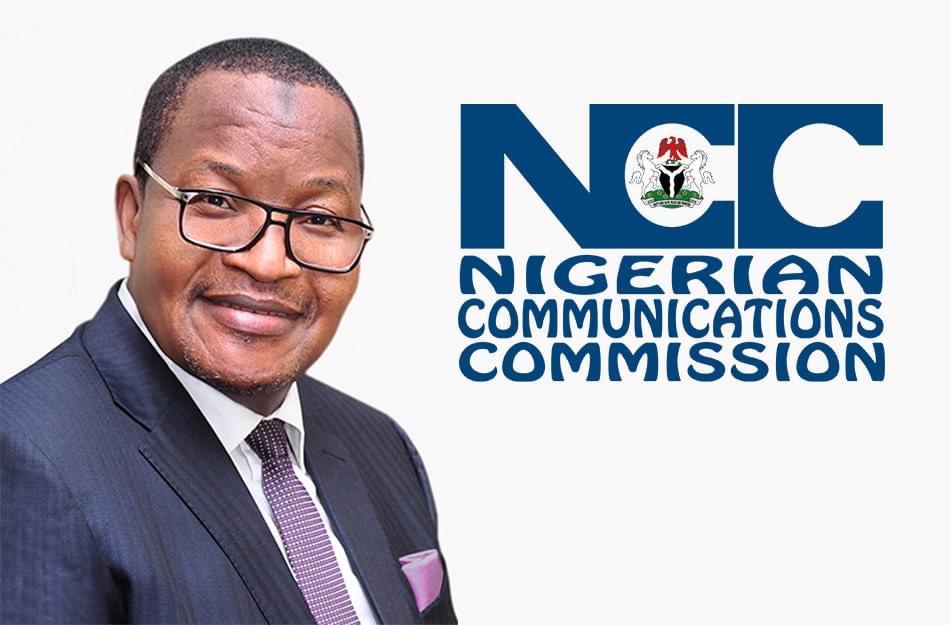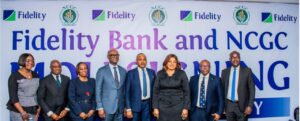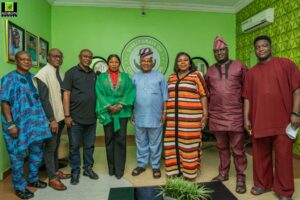Danbatta Highlights NCC’s Role In Supporting Fintech For National Growth

Share this Post
As the shift from paper and analogue to digital has become a new normal, with a large percentage of financial services and payments now powered and provided for through mobile phones and other mobile devices, the Nigerian Communications Commission, NCC, says it has put in place various efforts to ensure the availability, affordability and accessibility of internet and broadband connections across Nigeria.Speaking at the maiden edition of Finance and Business Online Publishers Association, FIBOP in Lagos on Tuesday, on the theme; “Harnessing Fintech Growth for Economic Development”, Executive Vice Chairman/CEO of NCC, Engr. Prof. Umar Garba Danbatta, said the commission’s Act 2003 saddled it with the responsibility of regulating the Telecommunications Sector, which is significant player for the achieving of the financial technology (FinTech).He said the backbone of FinTech and emerging technologies is hyper connectivity, which means growing interconnectedness of people, organizations, and machines that results from the internet, mobile technology and the Internet of Things (IoT).

Represented by Director, Digital Economy Department, Engr. A.K. Nwaulune, Danbatta noted that due to the enormous capabilities of information technology, the financial sector has latched on it to provide innovative digital financial services.
He said in order for Nigeria to achieve qualitative and quantitative digital accessibility and availability, there must be a robust and pervasive broadband and telecommunications services in both developed and underdeveloped parts of Nigeria, “noting that to support the actualization of Financial Technology in Nias a panacea for economic growth and social development, the Commission has and continued to intervene in various areas, such as;1. The National Digital Economy Policy and Strategy (NDEPS) 2020-2030 was developed in accordance with the mandate of Minister of Communications and Digital Economy to transform every aspect of modern life in Nigeria, for Nigeria to be a Global leader in the Digital Economy, as well as facilitating the diversification of the Economy and achievement of key national objectives. The implementation of the Strategies enshrined within the 8 Pillars of the NDEPS, will invariably lead to the actualization of a digital economy in Nigeria. This actualization results in the growth of Fintech, the growth of an E-Nigeria in both Government and the private sector, growth of Nigeria’s GDP, amongst other indices. The Commission along with all other responsible parties in the NDEPS are working assiduously towards actualizing the goals of the 8 Pillars of the NDEPS.2. The Nigerian National Broadband Plan (NNBP) (2020-2025): The NNBP has the overarching goal of providing ubiquitous and affordable broadband connectivity to every locality in Nigeria. Its main goals are to deliver 120,000km of fiber, 70 per cent penetration, data download speeds across Nigeria of a minimum of 25mbps in urban areas, and 10mbps in rural areas, with effective coverage available to at least 90 per cent of the population at a price not more than N390 per 1GB of data (i.e. 2% of median income or 1 per cent of minimum wage) by end of 2025. Currently Nigeria has achieved about 50 per cent broadband penetration and the Commission is working assiduously to achieve our goals of 70 per cent penetration by year 2025.3. The Award of the 5G Licence. The 5G license on the 3.5GHz band provides a unique opportunity for the rapid spread and deployment of spectrum based broadband across Nigeria. Award was granted to both Messrs. MTN Nigeria and Mafab Communications. With the issuance of the final letters of awards of 5G spectrum with one of the licensees commencing roll out of 5G services on August 24, 2022, this will enhance the transmission of massive data across platforms (Trade/Commerce, Gaming, Research, Entertainments, Artificial Intelligence (AI), Robotics, Sports, Financial inclusion etc.). This will ensure the availability of adequate broadband connectivity across Nigeria, maximizing further the terabytes of international data having landed on the shores of Nigeria, thanks to the efforts of Glo 1, Main One, WACS, amongst others.4.Collaboration with CBN. The Commission continues to collaborate with the CBN to ensure safe, secure, reliable and resilient networks for the actualization of financial inclusion in Nigeria in line with the National Financial Inclusion Strategy Revised (2018). These include collaborative meetings on USSD codes, on security of the networks, pricing, and NCC’s active participation in the CBN-led National Financial Inclusion Technical Committee and Working Groups.5. Collaboration with other Financial Technology Bodies. The Commission continues to partner with the International Telecommunications Union on the safety and security of the Digital Financial Networks; with the Rockefeller Philanthropy Advisers (RPA) and the Fintech Association of Nigeria (FintechNGR), amongst, in support and partnership for the growth of Financial Technology in Nigeria. In the same vein, the Commission also partners with, and provides necessary support as required to Fintech Tech Hubs and Start Ups as well as other Sectoral Tech Hubs and Start Ups across Nigeria.












